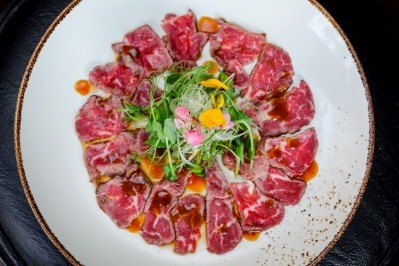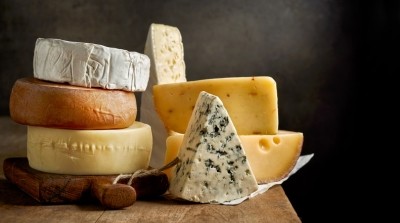‘Bring this to Brussels’: Meat lobbyists urge EU to follow French ban of ‘meaty’ terms on plant-based products

The official decree prohibiting the use of terms traditionally used to describe meat products – with the exception of the word ‘burger’ – was published last week. The ban, originally unveiled in 2020, will come into effect from October this year.
"It will not be possible to use sector-specific terminology traditionally associated with meat and fish to designate products that do not belong to the animal world and which, in essence, are not comparable," the authorities stated.
France, the largest beef producer in the European Union, has said the ban on the use of terms traditionally associated with meat products aims to avoid consumer confusion.
Meat industry welcomes move, calls for Europe-wide adoption
French food and meat industry associations welcomed the update.
Meat industry body INTERBEV described it as ‘a major step forward in terms of the transparency of information’ provided to consumers, stressing that plant-based alternatives are ‘not comparable’ with their meat animal derived counterparts.
INTERBEV is calling on this approach to be extended to European level.
“I welcome the adoption of this decree, which constitutes an essential step in favour of the transparency of information to the consumer as well as the preservation of our products and know-how,” said Jean-François Guihard, the President of INTERBEV who describes himself as a spokesperson for the livestock and meat sector and an artisan butcher. “The protection of meat denominations and their regulatory framework is a very important subject on which our [association] has been mobilizing for several years.”
Likewise, French food association FNSEA said France is taking a ‘decisive step towards transparency’.
In a joint statement with other French food industry associations, FNSEA noted ‘we have already obtained this framework at a European level for the designations of dairy products during the reform of CAP’, pointing to the fact that terms, such as ‘butter’, ‘milk’, and ‘cheese’ are now protected on the European level and cannot be applied to plant-based products.
In contrast, the French rule on names associated with meat only applies to products manufactured and marketed on French territory – products imported from the EU do not fall under the scope of the regulation. FNSEA said that the new rule is ‘insufficient’ and ‘will not avoid confusion for the French consumer’. FNSEA therefore called on the French government to ‘bring the file to Brussels’ in order to ‘widen the scope of application to all products, whatever their origin’.
“The public authorities must seize the opportunity,” FNSEA urged.
The French food industry associations want to see further tightening of food labelling regulations, including increased powers for the Directorate General for Competition, Consumer Affairs and Fraud Prevention and stronger country of origin labelling requirements.
“Origin labelling, which guarantees the quality of food products, must now gain momentum at European level, as part of the Farm to Fork strategy. In this sense, we are awaiting the publication of the decree governing the use of the French flag on food products.
“Transparent consumer information on the origin and composition of the product is one of the means that will make it possible to achieve the objective of food sovereignty at French and European levels. Once again France is showing the way, let's be up to it by implementing this new provision on a European scale.”



















